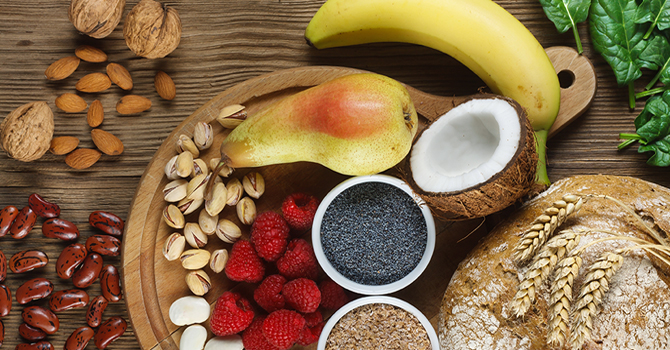The Environmental Impact of Meat Consumption: Meatless Monday Can Do More Good Than You Think

Jessica Yaser
Master’s Student in Occupational and Environmental Epidemiology
What Does the Science Say?
Veganism and vegetarianism can be controversial. And the research is complicated. It’s easy to find biased sources saying, “You must eat this” or “You must not eat that.” The truth is that eating meat is generally considered bad for the environment because its production involves huge amounts of pesticides, fertilizer, fuel, and water, and its distribution releases greenhouse gases into the air.
Despite the scientific evidence, it’s not realistic to ask everyone to become a committed vegan or vegetarian. Instead, minimizing meat consumption when and where you can is an easy way to reduce your environmental impact. So next Monday, consider celebrating Meatless Monday.
Every time you scan a barcode at a grocery store or order off a menu, you are telling the decision-makers of the world, “More of this, please.”
Assessing the environmental impact of producing the food we eat is complex. Do you measure water, greenhouse gas emissions, or land use? Are we talking about single food sources or someone’s entire food intake? The authors of a recent article in Nature magazine used three measures--carbon footprint (which accounts for greenhouse gas emissions), water footprint (which accounts for water consumption), and ecological footprint (which accounts for the amount of land or sea required to produce the food)--to compare the diets of omnivores, vegetarians, and vegans. They found that the omnivorous diet was associated with the worst environmental outcomes on all three dimensions compared to the other diets. Vegetarianism and veganism, they found, had about the same environmental impact.
Other Considerations
- No matter your diet, the question “Where has this food come from?” is important for both plant- and animal-based foods. A chicken breast from down the street is often a better environmental choice than an avocado from across the globe, simply due to the energy needed to transport the food.
- Eating less meat and more varied plants encourages farmers to plant a variety of crops, which is better for the health of the land. Growing the same crop in the same soil year after year is called monoculture, and it can lead to plant diseases.
- You can lessen your environmental impact by opting for beans instead of beef, and every time you do, you make a difference.
- Every time you scan a barcode at a grocery store or order off a menu, you are telling the decision-makers of the world, “More of this, please.” Be mindful of what you’re asking for.
My Personal Meat-Eating Strategy
Here’s a confession: I used to be a vegetarian, but I’m not anymore. I lost my willpower at Thanksgiving 2015, and since then I enjoy the occasional cheeseburger. Now I call myself a “reduce-atarian.” I abstain from meat when eating at home, but I don’t limit myself when I eat out. I do this because I am convinced of the environmental benefits of avoiding meat, but sometimes I also crave a cheeseburger. This is all to say, it doesn’t have to be all or nothing. My new diet philosophy is Michael Pollan’s seven-word maxim: “Eat food. Not too much. Mostly plants.”
- Read more articles by Epidemiology faculty, students, and alumni.
- Learn more about Occupational and Environmental Epidemiology at Michigan Public Health.
- Support research at Michigan Public Health.
About the Author
 A master's student in Occupational and Environmental Epidemiology, Jessica Yaser holds
a bachelor’s degree in Public Health from Purdue University with concentrations in
Behavioral Social Sciences and Environmental Health. Her research interests include
nutritional epidemiology, the built environment, and maternal and child health.
A master's student in Occupational and Environmental Epidemiology, Jessica Yaser holds
a bachelor’s degree in Public Health from Purdue University with concentrations in
Behavioral Social Sciences and Environmental Health. Her research interests include
nutritional epidemiology, the built environment, and maternal and child health.
